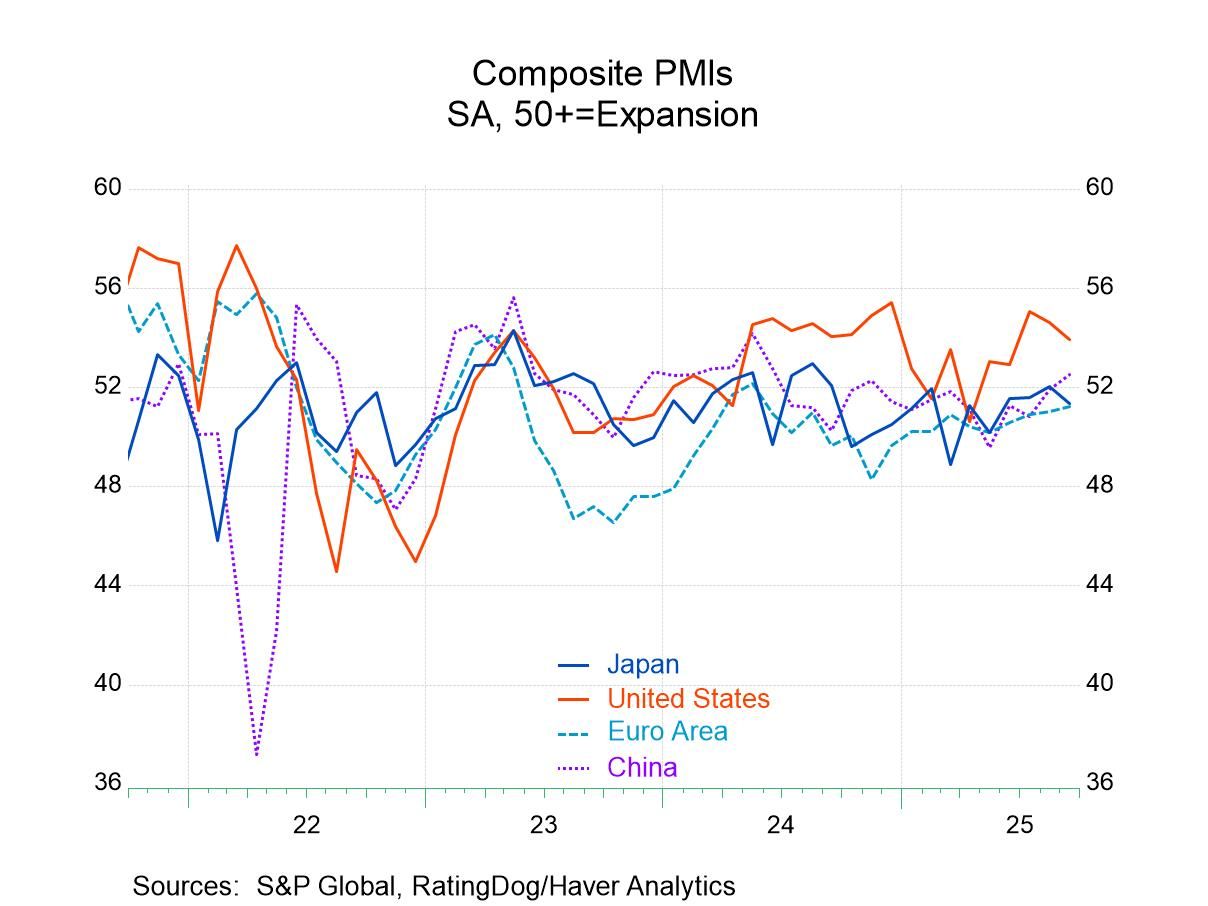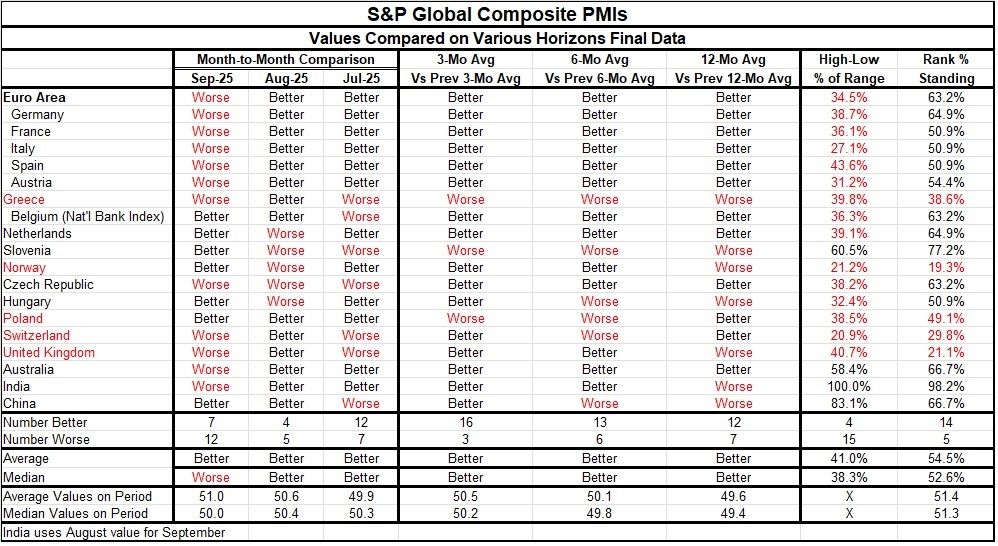 Global| Oct 03 2025
Global| Oct 03 2025Global Composite PMIs Show September Set-back

The standard and Poor’s composite Global PMIs for September showed broad weakness in the month compared to August. Only 7 reporters in the table showed improvement month-to-month while 12 showed deterioration. The average unweighted PMI value for September was 51.0 compared to 50.6 in August which surprisingly indicates an improvement. However, the median value showed a level of 50.0 in September compared to 50.4 in August, revealing deterioration. The breadth of comparison show a lot more weakness month-to-month than strength; however, the average and median data are at odds on what's happening on balance.
Compared to July the median data also showed that the September value was weaker; on average data, however, September is stronger compared to July. But both cases were dealing with rather small margins of change.
The sequential comparisons over three months, six months and 12 months chronicled in the table show all three horizons tilted toward improvement- even for the 3-month span in the face of the September broad deterioration. Median averages for each period are slightly weaker than average values but both comparisons show similar small improvements in the 3-month average compared to the 12-month average.
However, the average and mean value for the while span of data back to January 2021 are nearly identical and the ranking of the current September observations in that data is similar with a 54.5 percentile standing using the average of all rank standings on the period while the median of composite standings is at 52.6 percentile. Over the period, the rank standings show fourteen of nineteen observations are above the 50% mark putting them above the median for the period. Only five countries have composite PMIs below their median values since 2021. The laggards are Poland, Greece, Switzerland, the United Kingdom, and Norway. India has a ranking in its 98th percentile, but apart from that Slovenia has a 77th percentile ranking and the next tranche of rankings is in the sixtieth percentile encompassing Germany, Belgium, the Netherlands, the Czech Republic, Australia, and China. There are also four reporters with rankings above 50% but below 51%! These are France, Italy, Spain, and Hungary.
In comparisons, the high-low range rankings show countries generally much closer to their lower bound than their upper bound on the period, with Slovenia, Australia, India, and China as exceptions to this phenomenon.
The September data are bit disconcerting. But then the changes in the month are generally small. The average and median data for this group of countries shows average and median PMI values at 50 or 51. Both approaches are close to showing no or small output changes overall. While there have been swings in national data since 2023, there has been little trending at all as economic output has been mostly weak and showing little acceleration or deceleration except for specific countries over very short periods. The clear overriding trend has been sideways and weak. And it remains so.

Robert Brusca
AuthorMore in Author Profile »Robert A. Brusca is Chief Economist of Fact and Opinion Economics, a consulting firm he founded in Manhattan. He has been an economist on Wall Street for over 25 years. He has visited central banking and large institutional clients in over 30 countries in his career as an economist. Mr. Brusca was a Divisional Research Chief at the Federal Reserve Bank of NY (Chief of the International Financial markets Division), a Fed Watcher at Irving Trust and Chief Economist at Nikko Securities International. He is widely quoted and appears in various media. Mr. Brusca holds an MA and Ph.D. in economics from Michigan State University and a BA in Economics from the University of Michigan. His research pursues his strong interests in non aligned policy economics as well as international economics. FAO Economics’ research targets investors to assist them in making better investment decisions in stocks, bonds and in a variety of international assets. The company does not manage money and has no conflicts in giving economic advice.
More Economy in Brief
 Global| Feb 05 2026
Global| Feb 05 2026Charts of the Week: Balanced Policy, Resilient Data and AI Narratives
by:Andrew Cates






